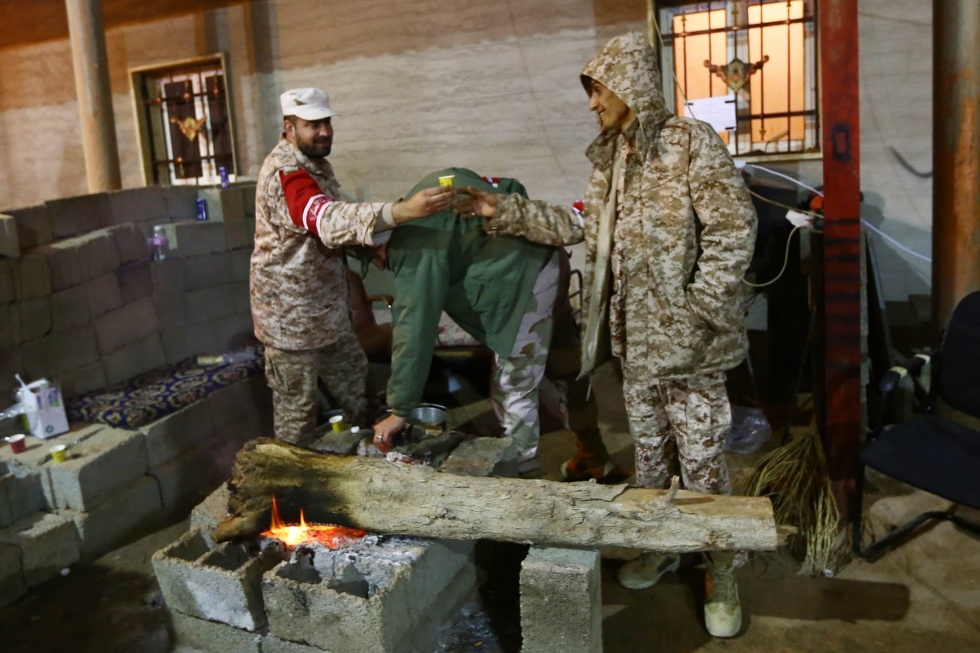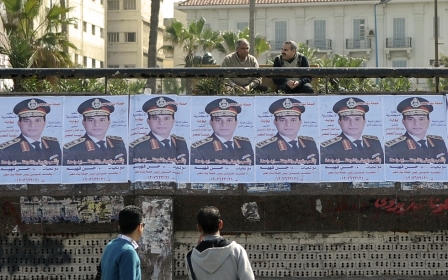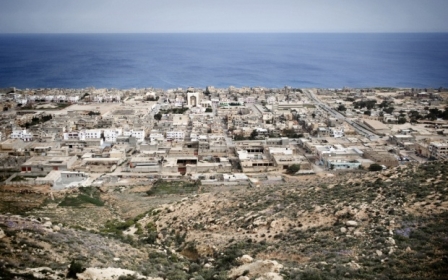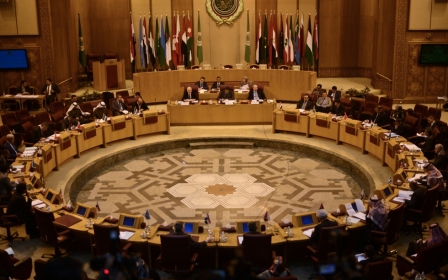ANALYSIS: Libya unity 'difficult but not impossible'

Having baulked at Egypt's call for military intervention in Libya, the international community faces a daunting task to find a political solution to the lawless North African country's crisis, analysts say.
The beheading this week of 21 mainly Egyptian Coptic Christians by the Islamic State group sparked Cairo to launch airstrikes against the militants in Libya and call for an international coalition to hit IS.
But Western and Arab states have flinched at the suggestion of military intervention, and UN envoy Bernardino Leon told the UN Security Council on Wednesday that the only cure for Libya's trauma was political.
And both the United States and Britain are openly opposed to allowing more weapons into Libya.
"The problem is that there isn't a government in Libya that is effective and in control of its territory," British Foreign Secretary Philip Hammond said, adding that "there isn't a Libyan military which the international community can effectively support."
Libya first needs a government of national unity in place, stressed Hammond. "But simply pouring weapons into one faction or the other, which is essentially what has been proposed, is not to bring us to a resolution to the crisis in Libya, and is not going to make Europe safer, is going to make it more at risk," Hammond said.
US State Department spokeswoman Jen Psaki said the US position on keeping the arms embargo hasn't changed. "It permits transfers necessary to support the Libyan government while allowing the Security Council to seek guard against the high risk that weapons may be diverted to non-state actors."
'Resist calls to lift the arms embargo'
Claudia Gazzini of the International Crisis Group said a political accord would be "difficult, but not impossible to achieve."
"The international community must stay focused on supporting the dialogue efforts and resist calls to lift the arms embargo," the analyst said.
Libya is awash with weapons and rival militias are battling for control of its cities and oil wealth. It has two rival governments and parliaments – one based in Tripoli while the other resides in Tobruk.
One UN diplomat said lifting the arms embargo would be tantamount to pouring fuel on the fire.
Since launching efforts at dialogue in September, Leon has been unable to bring together leading players from rival camps.
The UN envoy's best achievement so far has been to begin "indirect" talks last week between the Tobruk-based government of the House of Representatives (HoR) and Tripoli-based government of the General National Congress (GNC).
But observers believe efforts to bridge the gap between the two sides will fail so long as their respective armed factions are not at the same table.
HoR is backed by General Khalifa Haftar and GNC is supported by Fajr Libya (Libya Dawn) forces.
"It is very difficult, but with dialogue everything is possible," said Libya analyst Khaled al-Hetch.
Haftar an 'obstacle' to political solution
He sees one solution as "giving Hafter the post that he wants", the supreme leadership of Libya's armed forces, in return for forming a unity government made up of representatives from both sides.
This week a parliamentarian who is party to the talks, Tarek al-Jerouchi, said some world leaders wanted their favoured parliament - HoR - to remove Haftar from the scene.
It is a demand supported by Ibrahim al-Karaz, political science professor at the University of Tripoli, who said he viewed Haftar as an "obstacle" to a political solution.
Karaz also criticised Egypt for getting involved in the Libyan crisis.
"Egypt and other countries in the region need to stop interfering in Libyan affairs. It is foreign intervention that complicates all political processes," he said.
Analysts said the situation has been further muddied by Libya's rival factions each having its own regional backers. Egypt, the United Arab Emirates and Saudi Arabia are said to support Haftar, with Qatar and Turkey favouring Fajr Libya.
"These countries are setting fire to the powder keg," said Saad Djebbar, a London-based analyst.
"In Libya there is a fight for influence between regions and tribes. Each of them wants to say their piece. The international community needs to reassure each player and make them understand that they all have a place in the new Libya."
Middle East Eye propose une couverture et une analyse indépendantes et incomparables du Moyen-Orient, de l’Afrique du Nord et d’autres régions du monde. Pour en savoir plus sur la reprise de ce contenu et les frais qui s’appliquent, veuillez remplir ce formulaire [en anglais]. Pour en savoir plus sur MEE, cliquez ici [en anglais].




